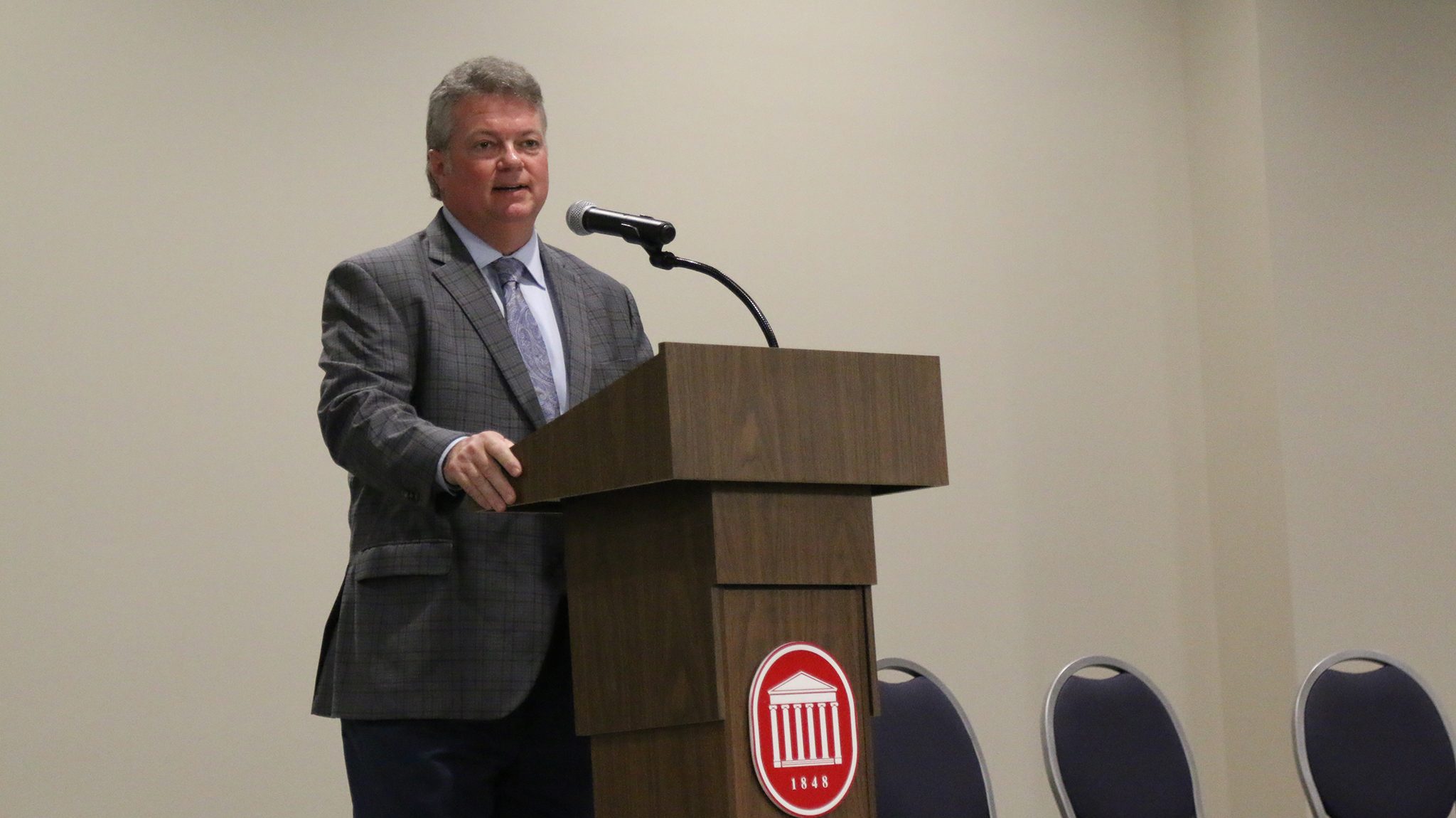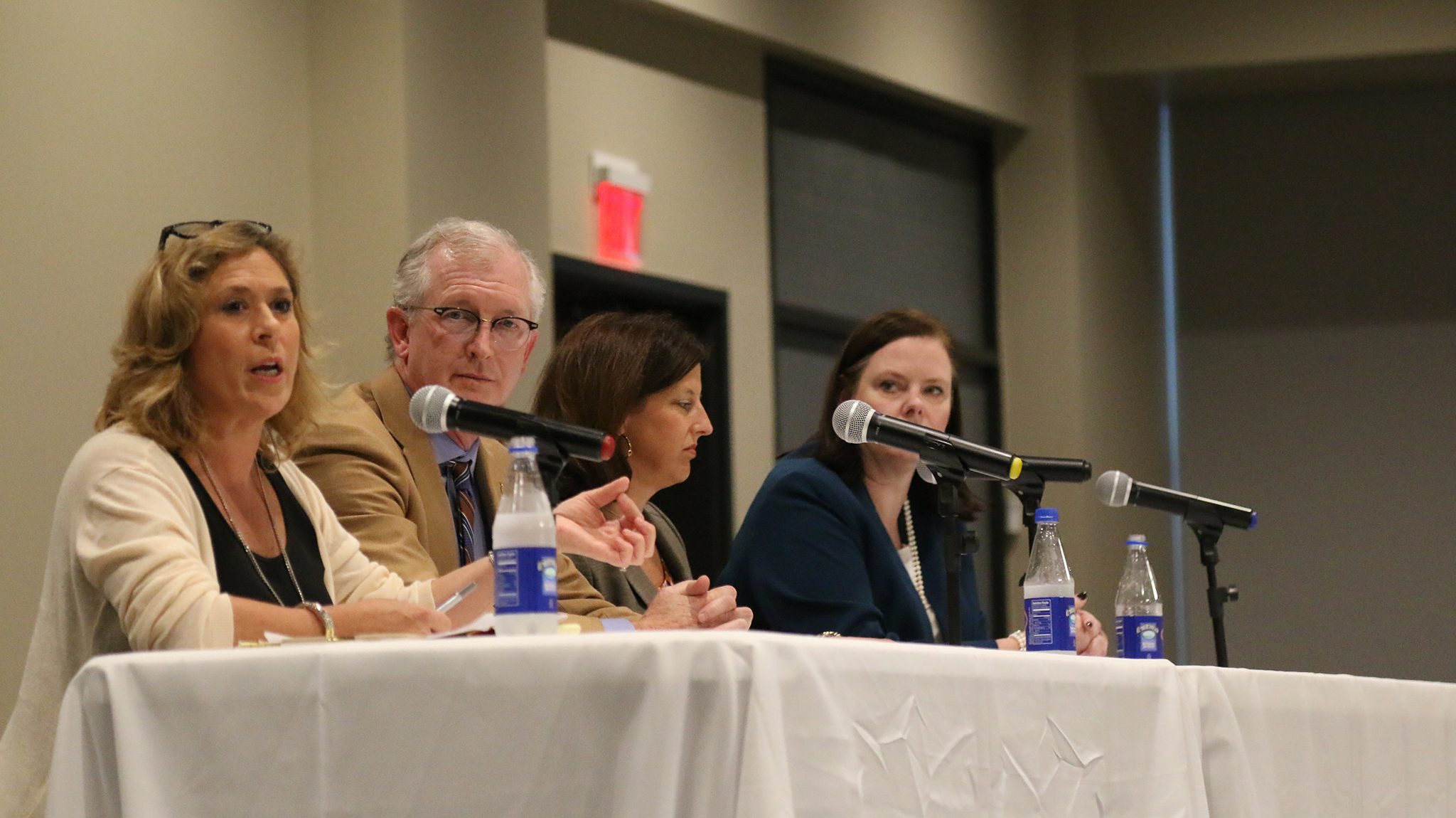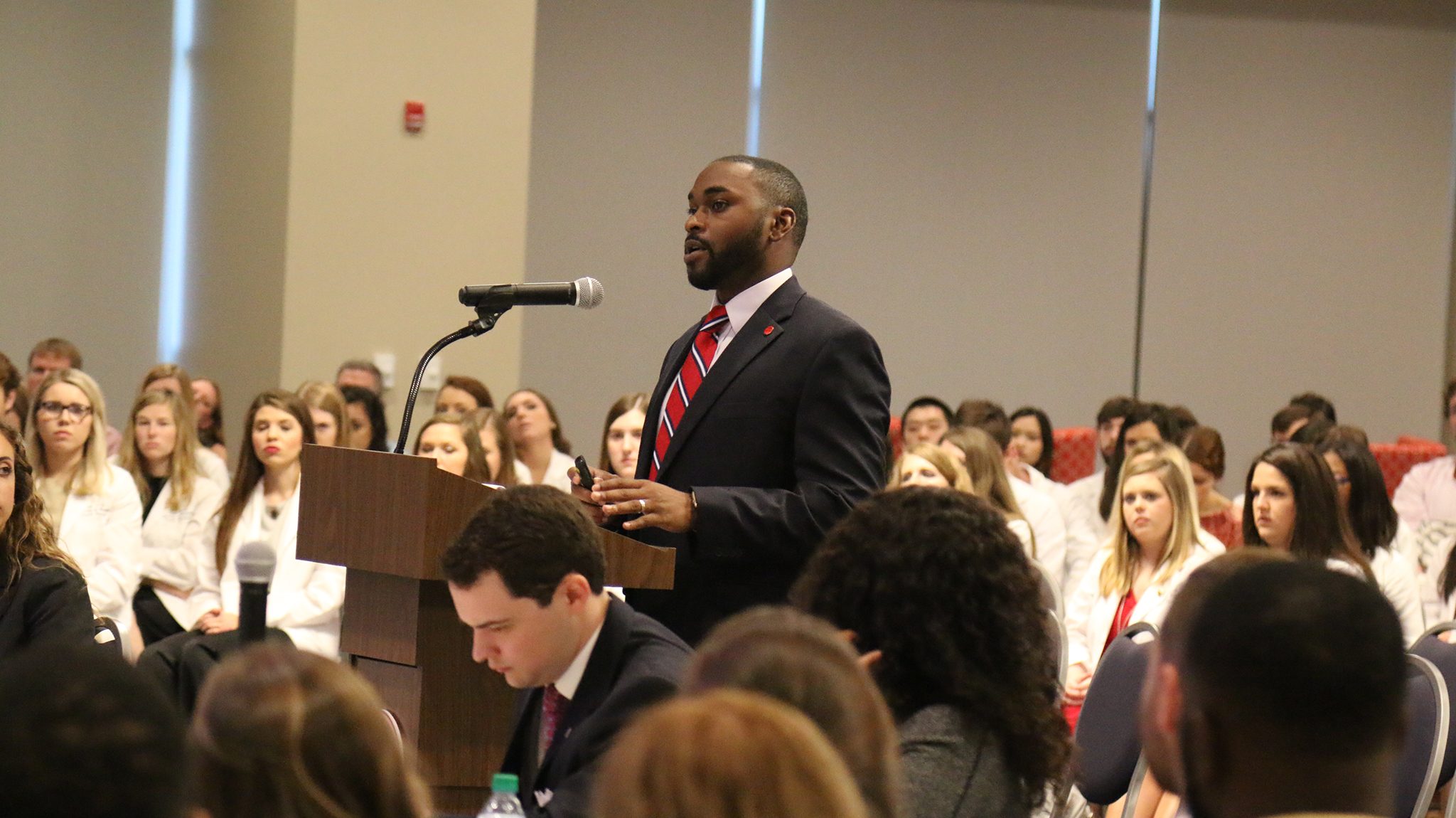
Mississippi Attorney General Jim Hood speaks to law and pharmacy students during the interprofessional symposium regarding the opioid crisis in the state. Photo by Christina Steube/School of Law
OXFORD, Miss. – More than 115 people die each day in the United States from opioid overdoses, according to the National Institute on Drug Abuse.
These statistics constitute a crisis, and the University of Mississippi schools of Law and Pharmacy are working together to combat that crisis in an interdisciplinary manner.
Last week, the schools collaborated for an education symposium on “An Interprofessional Approach to the Opioid Crisis in Mississippi.” More than 300 law and pharmacy students attended the event, which included a mock trial in front of Roy Percy, magistrate judge for the Northern District of Mississippi, and a keynote speech by Mississippi Attorney General Jim Hood.
“A multidisciplinary approach is great and our university here is the first I’ve seen do this, so y’all are on the front end of addressing the crisis,” Hood said. “These epidemics come and go, but we have yet to see an epidemic affect such a broad cross-section of people.”
Chancellor Jeffrey Vitter provided opening comments at the symposium and commended the schools for proactively addressing the opioid epidemic.
“By working together, we are more likely to understand the full breadth of this challenge and to find innovative solutions,” Vitter said.

Symposium panelists discuss the importance of an interdisciplinary approach to the opioid crisis. Photo by Christina Steube/School of Law
The afternoon panel featured Lauren Bloodworth, clinical associate professor of pharmacy practice; Dr. Kenneth Cleveland, executive director of the Mississippi State Medical Board of Licensure; Amanda Criswell, nurse practitioner and instructor of nursing at the University of Mississippi Medical Center; and Julie Mitchell, an attorney at Mitchell Day Law Firm in Ridgeland.
Law professor Larry Pittman and pharmacy practice professor Kim Adcock worked over the last year to organize the event to ensure that both professional schools developed an understanding of how different professions are navigating the opioid crisis.
“This interprofessional mock trial and symposium exemplified the importance of interdisciplinary interactions and provided a springboard for our students to begin working together to learn from, about and with each other,” Adcock said.
The goal of the event was to provide students and future practitioners a foundation to make the best professional decisions related to pain management.
“Interprofessional education and collaboration are very important because such efforts are necessary for resolving many of the pressing issues that we as a nation will continue to encounter,” Pittman said.

UM law student Sammy Brown serves as an attorney during the mock trial portion of the interprofessional collaboration between the schools of Law and Pharmacy. Photo by Christina Steube/School of Law
The School of Pharmacy engages in regular interprofessional education with many of the health sciences schools on the UMMC campus, where upper-level pharmacy students receive training, and the School of Law engages in interdisciplinary endeavors with undergraduate programs and other legal entities. However, this is one of the first such events where the two schools collaborated to address a national crisis.
“Law is inextricable from the profession of pharmacy,” said David D. Allen, UM pharmacy dean. “This is an incredible way to demonstrate to our future pharmacy, nursing and law professionals that together they have the power to make real contributions that can lessen or end the opioid crisis.”
Allen and Susan Duncan, dean of the law school, both expressed hope that the seminar would show students that interprofessional collaboration has potential to create solutions for any number of professional issues.
“We are educating future leaders, and it’s so important that they understand the importance in collaborating with those of other disciplines,” Duncan said. “Students in professional schools work well with each other, but it is vital for them to learn from their peers in other schools who can provide a different perspective.”